With authentic accessories and uniforms easily available in shops, it’s no wonder the boys in grey are copied
Maxmilian Wechsler investigates police imposters, speeding cars with unauthorized emergency lights flashing - and foreigners hassled on the street by the real police
Maxmilian Wechsler investigates police imposters, speeding cars with unauthorized emergency lights flashing - and foreigners hassled on the street by the real police
POLICE imposters are unfortunately a common feature of Thailand’s crime scene. They’re involved in an assortment of crimes from drug trafficking, blackmail to extortion, fraud and rape – and the victims may be Thais or foreigners. To instantly pass as a police officer is remarkably easy. You can purchase various authentic police accessories without hassle or much expense from shops and stalls in Bangkok and upcountry, and at places where the real police shop as well.
| These accessories include articles of clothing like jackets, caps, T-shirts and other items with embroidered or printed emblems or logos of the Royal Thai Police (RTP), Crime Suppression Division (CSD), Metropolitan Police Bureau, Immigration Bureau and other police agencies. Any person, Thai and foreign, can also buy authentic police emblems, insignias or logos of different sizes made from fabric, plastic or paper stickers that can be attached on clothes, cars, motorcycles or practically anything. These stickers can be bought for 10 to 20 baht each from vendors pushing carts on Bangkok streets. Also available and quite affordable are transceivers, police riot shields, buttons (some illuminated), various designs of police vests, megaphones, and helmets for motorcycle patrol and traffic police. You can buy a police shield badge that you can hang on your neck and even pick up a fill-in-the-blanks permit to carry a gun. It takes just a few minutes to attach a photo and fill in personal information on these items. The badge sells for about 300 baht and the gun permit for only 10 baht. If you want to make an even more realistic impression, for 20 baht you can buy a plastic wallet with the emblem of the CSD and keep the permit there. To prove the point two BigChilli volunteers were transformed into policemen. Few people on the street would suspect that anyone walking around decked out like this was an imposter. For a bit more money to buy the appropriate cap, our graphics designer could become a police colonel (cap with one row of silver flowers) or higher ranking officer (cap with two rows of silver flowers). Thais generally respect and even admire anyone in uniform and this may explain their popularity. And this doesn’t stop at the police and military; many other professions wear uniforms with lots of flashy of badges and decorations that can all be bought by anyone to impersonate private security guards, teachers, toll collectors on the expressways, Bangkok Metropolitan Administration (BMA) officers and many more. All the accessories in the accompanying photos were bought by a Thai woman and foreign man from shops in Bangkok and at a stall near the police station in Hua Hin. During the purchases, no questions were asked either by the sellers or other customers, most or all of whom were genuine policemen, some in uniform. They were buying things like accessories showing police rank, belts, handcuffs, gun holsters and articles of official clothing. With more than 200,000 officers serving in the RTP, it is a thriving business, even without the imposters. There are in fact laws on the books concerning impersonating a police officer, but when two senior police officers were asked in what circumstances an imposter should be arrested, there was some disagreement. They differed in opinion on whether a person who is not a police officer but appears in public wearing a cap or jacket with the Royal Thai Police insignia should be arrested. One policeman said that he would be breaking the law and should be arrested and charged. The other said that making an arrest would depend on whether the person was giving an impression to the public that he/she was a police officer. However, they agreed that if someone approaches a citizen or foreigner wearing clothes with police insignia and badge and introduces himself as a police or other official, then threatens, intimidates or demands money, they should definitely be arrested. | The law: Penal Code of Thailand B.E. 2499 (1956) Section 145 Whoever claims to be an official and exercises the functions of an official without being an official having the power to do so, shall be punished with imprisonment not exceeding one year or fined not exceeding 2,000 Baht, or both. Section 146 Whoever does not to have the right to wear the uniform or insignia of any of official, member of State Legislative Assembly, member of Provincial Assembly or member of Municipal Assembly, or not to have the right to use of any official title, rank, decoration or thing to symbolize the decoration, and to do so in order to be believed by another person than oneself has the right to wear those things, shall be punished with imprisonment not exceeding one year or fined not exceeding 2,000 Baht, or both. Official Logo Act B.E. 2482(1939) Section 6 Official logos may only be used by authorized personnel of the relevant departments. Section 7 Nobody can copy or imitate official logos, including using different colours of materials. Nobody can display copied or imitated official logos on any material or goods. Section 8 Whoever violates Section 6 or Section 7 will be punished with imprisonment not exceeding one year and a fine not exceeding 2,000 baht. |
| Bright flashing lights ANYBODY is free to buy emergency lights or sirens, but a permit from the RTP Office is needed to install and use them on vehicles or motorcycles. The permit must be obtained for police, military, fire brigade, emergency, municipal and all other kinds of official vehicles, and is valid for three years. The choice of flashing lights and sirens is wide, and one shop offered to install them on our vehicle without asking for a permit. According to the regulations, different types of emergency vehicles should use specific colours of lights. For example, police, military and fire brigade cars can use red lights, ambulances should use blue, and yellow lights should be used by other emergency vehicles, like those of the BMA, Expressway Authority of Thailand and rescue foundation vehicles. However, these generally use red or a combination of red and blue lights, as do ambulances. One police officer said that owners of vehicles using unauthorized emergency lights and decorating their cars with police emblems could be impersonating police in order to smuggle drugs, transport illegal immigrants or commit other crimes. On the other hand, some are probably just doing it for fun or to show off. In one incident witnessed by a colleague, a black Honda Accord with Nakhon Sawan plates zoomed past on the expressway going toward Bangkok with red and blue emergency lights flashing inside the cabin. The car was doing at least 150km/h, zig-zagging and overtaking cars in a dangerous manner. |
The car was stopped at a toll gate where the police regularly maintain a checkpoint in the morning. Four policemen, one at each door, approached the car and were talking to the occupant or occupants. The colleague didn’t stick around long enough to see if the driver was arrested.
Another policeman assisting this article described a similar incident, when a black Toyota Fortuner with Phetchaburi plates, and red emergency lights flashing, raced along the same expressway towards Bangkok. Motorists were getting out of the way and letting it pass, probably out of fear of being rammed by the vehicle.
The policeman said that many vehicles belonging to provincial administration organizations use red emergency lights for motorcades or escorts on provincial roads and think they can do the same in Bangkok. He believes that this applies to the two cases above.
It was in February 2010 that Police Major General Panu Kerdlapphol, Deputy Commissioner of the MPB (now Lieutenant General, Commissioner, Provincial Police Region 3) warned motorists not to use unauthorized emergency lights and sirens or decorate their vehicles with police shields.
“I think that these people are half-psycho, half-arrogant. The real police cars normally keep their emergency lights and sirens off,” Mr. Panu said.
He ordered Bangkok traffic police to crack down on such vehicles and also asked rescue foundations to use only yellow lights. These foundations responded that yellow lights are not respected and motorists will not make way for them
Another policeman assisting this article described a similar incident, when a black Toyota Fortuner with Phetchaburi plates, and red emergency lights flashing, raced along the same expressway towards Bangkok. Motorists were getting out of the way and letting it pass, probably out of fear of being rammed by the vehicle.
The policeman said that many vehicles belonging to provincial administration organizations use red emergency lights for motorcades or escorts on provincial roads and think they can do the same in Bangkok. He believes that this applies to the two cases above.
It was in February 2010 that Police Major General Panu Kerdlapphol, Deputy Commissioner of the MPB (now Lieutenant General, Commissioner, Provincial Police Region 3) warned motorists not to use unauthorized emergency lights and sirens or decorate their vehicles with police shields.
“I think that these people are half-psycho, half-arrogant. The real police cars normally keep their emergency lights and sirens off,” Mr. Panu said.
He ordered Bangkok traffic police to crack down on such vehicles and also asked rescue foundations to use only yellow lights. These foundations responded that yellow lights are not respected and motorists will not make way for them
The law: Land Traffic Act B.E. 2522 (1979)
Section 13
Cars and motorcycles cannot use flashing-lights, sirens, whistles, faltering sound, etc., except emergency vehicles, military and police vehicles, or when permitted by the regulation. Penalty for these offences are 500 baht.
Section 13
Cars and motorcycles cannot use flashing-lights, sirens, whistles, faltering sound, etc., except emergency vehicles, military and police vehicles, or when permitted by the regulation. Penalty for these offences are 500 baht.
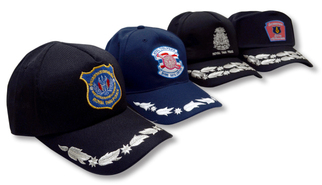
Foreigners searched on Sukhumvit
ON August 12, 2012, the Bangkok Post published a letter with the headline: “Paranoia Strikes on the Street.” Following are exerts from the letter: “I was walking along Sukhumvit Road close to Interchange Tower, totally sober and minding my own business, when a policeman standing near a group of motorcycle taxis asked me where I was going. At first I actually thought he was just being friendly, but then he told me to hand over my backpack. He gave it a pretty good search and then asked me to empty my pockets and show him what was inside.
“When I pulled out my wallet he took it and looked through it, but didn’t take anything. Then he asked me where I lived before waving me off. It may be that there was a credible reason for stopping me, but his demeanour was kind of creepy and I was happy to be on my way with no complications.
“I’m aware of the scams in which police take small bribes from motorists and the one from the ‘cigarette police,’ but in the more than 10 years I’ve lived in Bangkok this is the first time I have been stopped and searched or hassled in any way on the street, which I think says a lot for the Thai police department’s treatment of foreigners in general.”
The letter caught our attention because we had been monitoring the vicinity for a while after hearing of similar incidents. In July and August The BigChilli witnessed three searches of foreigners, all males and all Caucasians.
In one incident a young foreign man holding a plastic bag was searched at the corner of Asoke and Sukhumvit roads by six policemen. They appeared to be enjoying themselves, joking and laughing while searching the visibly frightened man. The police found a box of Viagra, likely counterfeit, inside the bag and asked him where he bought it. The man was also told to empty his pockets. One policeman waved his hand to direct the crowd of onlookers who had gathered to move on.
Coincidentally, about five meters where the man was stopped were two stalls, one displaying several boxes of “Viagra” and other such sexual aids and sex toys, and the other about 30 counterfeit watches. The police made no contact with the vendors but we noticed after we returned to the location about 30 minutes later that the stalls were still there. The vendors stood nearby and only approached the stalls when foreigners stopped to examine the goods.
We also witnessed the search of another foreign man who arrived at about the same spot by motorcycle taxi without a bag. One uniformed policeman wearing a helmet searched him while another officer sat nearby on a motorcycle. They found nothing and let him go.
Another foreigner who was also allowed to move on after police stopped and searched him agreed to talk to The BigChilli.
“I was about to walk up the stairs to the BTS station when a policeman who was chatting with motorcycle taxis called out to me in English: ‘Hey, where are you going? Give me your bag!’
“He opened the bag and searched inside pretty diligently. Then he asked me to empty my pockets. He looked at my mobile phone and wallet but didn’t take anything.
“I’m sure both of them were real cops, with real guns. The one who searched me didn’t introduce himself or ask me if I would allow the search. He was about 40 years old. He said he was looking for a bomb, and didn’t ask to see any ID or other documents. Maybe I should have asked which police station he was attached to, but I just wanted to get away.
“He was kind of intimidating, not at all polite. If he had been more professional I don’t think I would have minded so much, but the way he conducted himself was totally unacceptable. I don’t know if what he did was illegal, but in my country policemen aren’t allowed to make searches without probable cause, and I don’t think there’s much to distinguish me from the thousands of other foreigners walking down this street every day.”
We have also heard reports of several foreigners being stopped and searched on Sukhumvit Road near the Thonglor BTS station for no apparent reason.
According to one of our police advisers, before conducting a search the policeman should identify himself and give the reason for the search. “The police can always find some reason to justify the search. Just to say that the person appears suspicious is reason enough,” he said, adding that females can only be searched by a policewoman. A policeman is prohibited from touching a woman.
ON August 12, 2012, the Bangkok Post published a letter with the headline: “Paranoia Strikes on the Street.” Following are exerts from the letter: “I was walking along Sukhumvit Road close to Interchange Tower, totally sober and minding my own business, when a policeman standing near a group of motorcycle taxis asked me where I was going. At first I actually thought he was just being friendly, but then he told me to hand over my backpack. He gave it a pretty good search and then asked me to empty my pockets and show him what was inside.
“When I pulled out my wallet he took it and looked through it, but didn’t take anything. Then he asked me where I lived before waving me off. It may be that there was a credible reason for stopping me, but his demeanour was kind of creepy and I was happy to be on my way with no complications.
“I’m aware of the scams in which police take small bribes from motorists and the one from the ‘cigarette police,’ but in the more than 10 years I’ve lived in Bangkok this is the first time I have been stopped and searched or hassled in any way on the street, which I think says a lot for the Thai police department’s treatment of foreigners in general.”
The letter caught our attention because we had been monitoring the vicinity for a while after hearing of similar incidents. In July and August The BigChilli witnessed three searches of foreigners, all males and all Caucasians.
In one incident a young foreign man holding a plastic bag was searched at the corner of Asoke and Sukhumvit roads by six policemen. They appeared to be enjoying themselves, joking and laughing while searching the visibly frightened man. The police found a box of Viagra, likely counterfeit, inside the bag and asked him where he bought it. The man was also told to empty his pockets. One policeman waved his hand to direct the crowd of onlookers who had gathered to move on.
Coincidentally, about five meters where the man was stopped were two stalls, one displaying several boxes of “Viagra” and other such sexual aids and sex toys, and the other about 30 counterfeit watches. The police made no contact with the vendors but we noticed after we returned to the location about 30 minutes later that the stalls were still there. The vendors stood nearby and only approached the stalls when foreigners stopped to examine the goods.
We also witnessed the search of another foreign man who arrived at about the same spot by motorcycle taxi without a bag. One uniformed policeman wearing a helmet searched him while another officer sat nearby on a motorcycle. They found nothing and let him go.
Another foreigner who was also allowed to move on after police stopped and searched him agreed to talk to The BigChilli.
“I was about to walk up the stairs to the BTS station when a policeman who was chatting with motorcycle taxis called out to me in English: ‘Hey, where are you going? Give me your bag!’
“He opened the bag and searched inside pretty diligently. Then he asked me to empty my pockets. He looked at my mobile phone and wallet but didn’t take anything.
“I’m sure both of them were real cops, with real guns. The one who searched me didn’t introduce himself or ask me if I would allow the search. He was about 40 years old. He said he was looking for a bomb, and didn’t ask to see any ID or other documents. Maybe I should have asked which police station he was attached to, but I just wanted to get away.
“He was kind of intimidating, not at all polite. If he had been more professional I don’t think I would have minded so much, but the way he conducted himself was totally unacceptable. I don’t know if what he did was illegal, but in my country policemen aren’t allowed to make searches without probable cause, and I don’t think there’s much to distinguish me from the thousands of other foreigners walking down this street every day.”
We have also heard reports of several foreigners being stopped and searched on Sukhumvit Road near the Thonglor BTS station for no apparent reason.
According to one of our police advisers, before conducting a search the policeman should identify himself and give the reason for the search. “The police can always find some reason to justify the search. Just to say that the person appears suspicious is reason enough,” he said, adding that females can only be searched by a policewoman. A policeman is prohibited from touching a woman.
The law: Criminal Procedure Code of Thailand B.E. 2477 (1936)
Section 93
The search of any person in the public place shall be prohibited, unless such search is made by the administrative or police official where there are the grounds expedient to suspect that such person has the article in possession to commit the offence or be obtained by the offence.
Section 93
The search of any person in the public place shall be prohibited, unless such search is made by the administrative or police official where there are the grounds expedient to suspect that such person has the article in possession to commit the offence or be obtained by the offence.

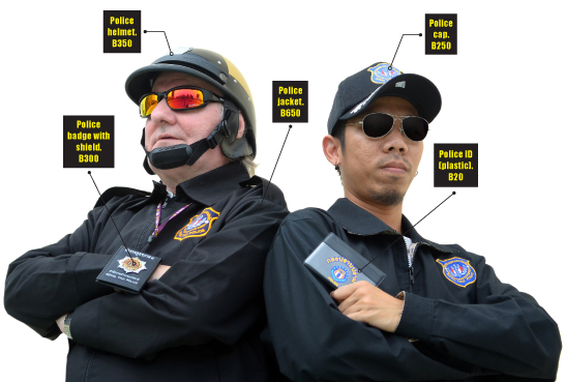
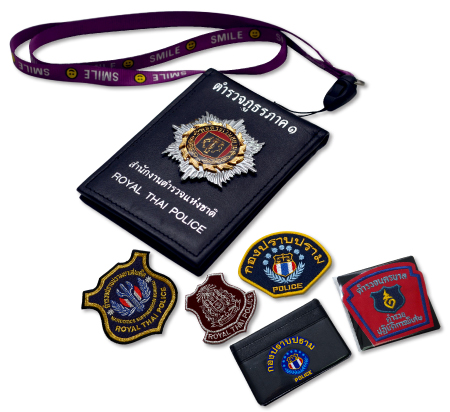
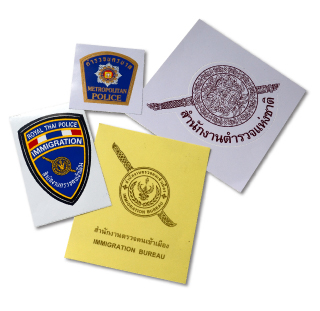
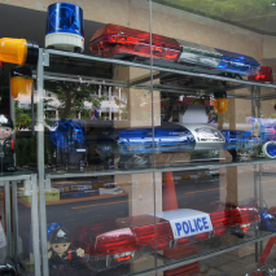
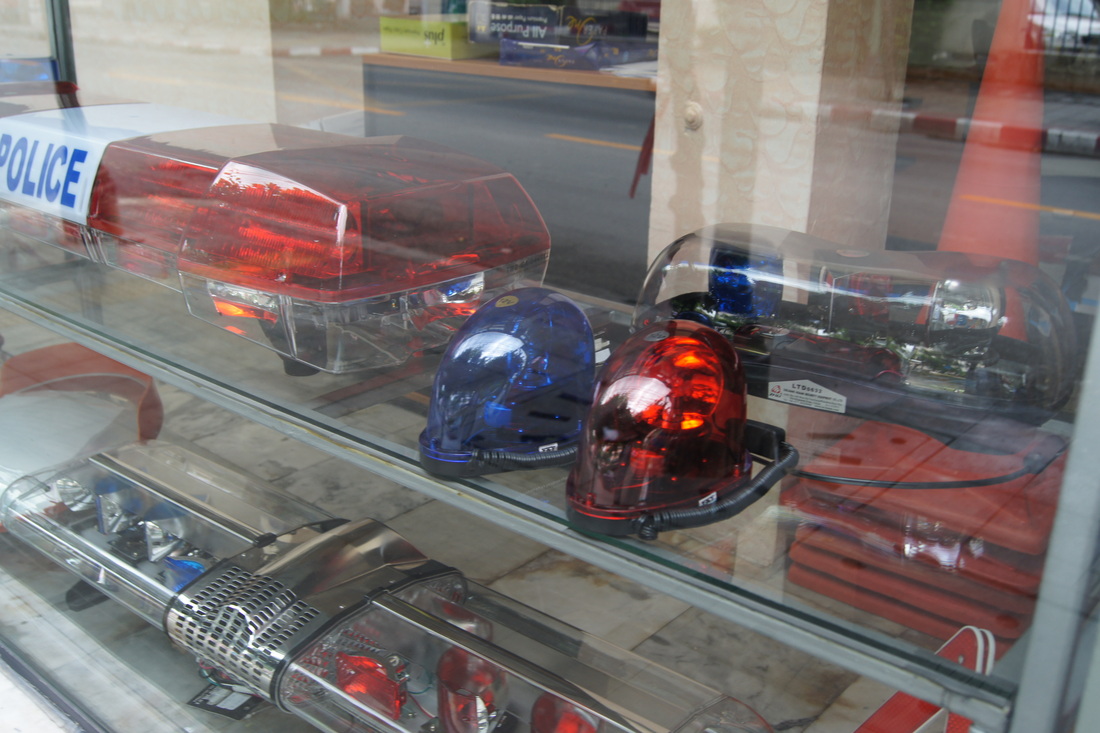
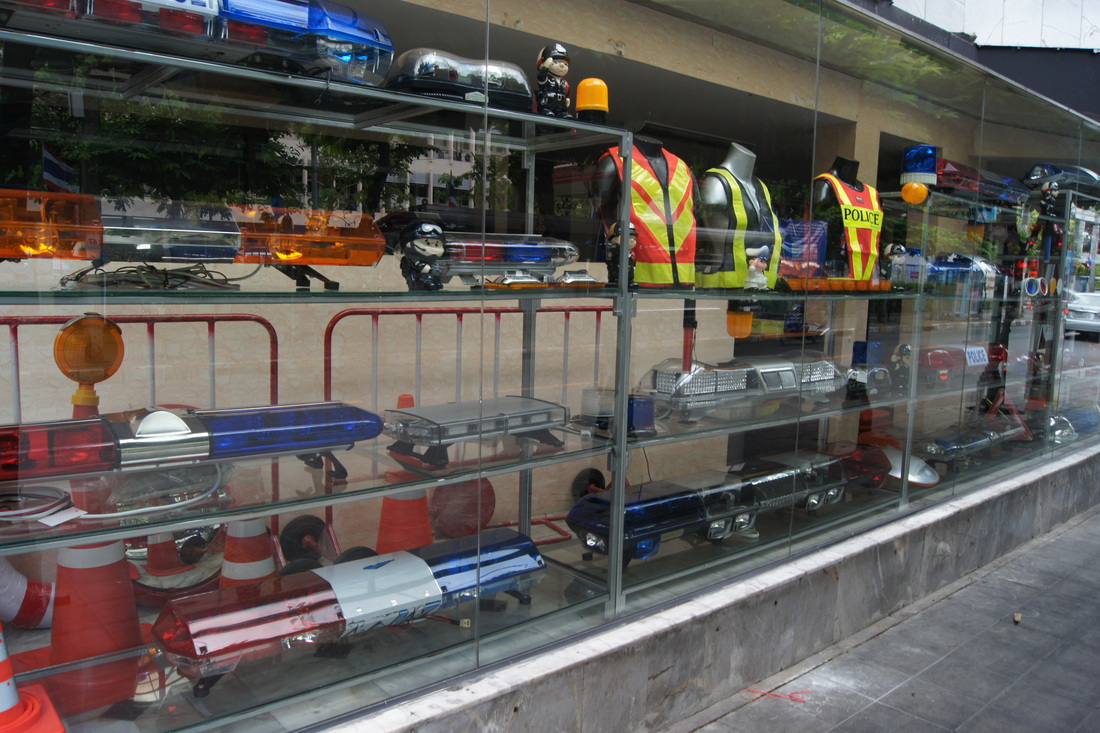
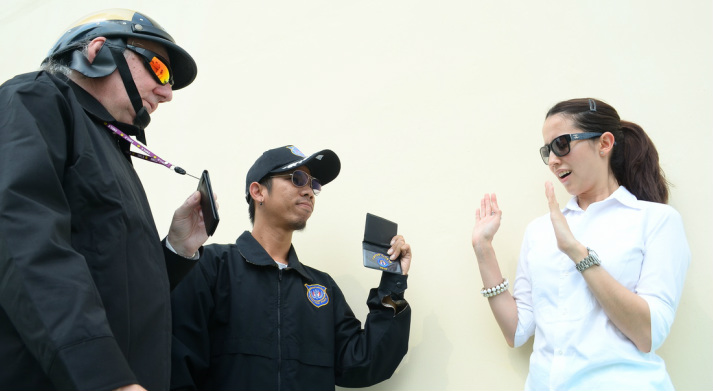
 RSS Feed
RSS Feed
















